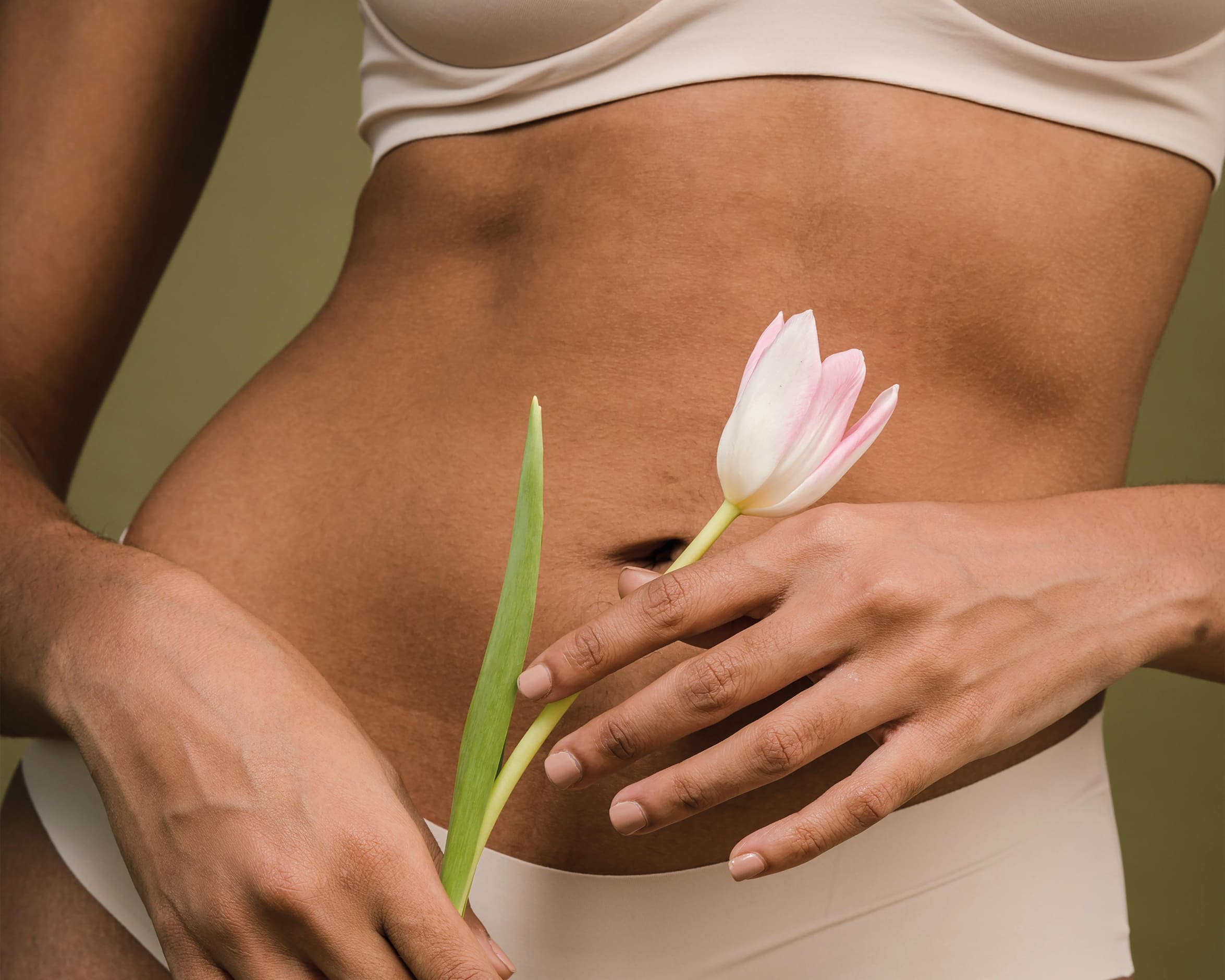Keeping your nether regions healthy, clean and happy is easy as one, two, three…
While the market is flooded with feminine hygiene products and all manner of scented commodities designed to keep you smelling good ‘down there’, the truth is that keeping your bits and bobs fresh, healthy and in good working order is extremely simple and relies on nothing but regular bathing„ gentle soap and a bit of common sense. Here’s what every female on the planet needs to know.
To douche or not to douche?
Deep-cleansing the vagina with a liquid solution might sound like a good idea but doctors caution against it. See, the vagina is a very well-designed self-cleaning mechanism (that’s what the discharge on your panties is about) and introducing fragrance and harsh soaps can disrupt the natural pH balance. You probably didn’t know this, but your vagina has a delicate ecosystem of bacteria which keeps you healthy and helps to prevent infections.
According to Marie Stopes South Africa: “The vagina has super sensitive pH levels, as well as a mix of good bacteria that keep it healthy. This balance can be easily disturbed by harsh soaps and cleansers – even the ones that say they’re specifically for feminine hygiene. Many of these products are playing on women’s insecurities about their vaginas, and their promises often aren’t true.”
When you disturb this ecosystem by introducing foreign substances, you make yourself vulnerable to an overgrowth of harmful bacteria or fungi, resulting in infections like bacterial vaginosis and unpleasant yeast infections. The same goes for the practice of steaming the vagina in order to properly clean it. Sounds good in theory, but is totally unnecessary—- and worse, it can result in painful burns.
The vagina has super sensitive pH levels, as well as a mix of good bacteria that keep it healthy
Tips and tricks for a happy vadge
► Wear 100% cotton underwear — it’s breathable and absorbs moisture. Tight clothing in nylon and rayon traps moisture, which can create a great environment for bacteria that cause infections.
► Go commando at night. Letting your bits air helps prevent the growth of bacteria and yeast.
► Keep your pelvic floor in good nick by doing regular Kegel exercises. Incontinence after childbirth and later in life is extremely common but you can minimise the chances.
► If you’re prone to yeast infections, certain probiotics can help support vaginal bacteria.
► Schedule regular checkups with your gynaecologist to make sure everything is in working order.

When auntie flow is paying a visit
Contrary to myth, superstition and dogma, there is nothing ‘dirty’ about menstruation. Quite the opposite: it means you are healthy, your hormones are likely in balance and your body is doing exactly what it was designed to do. Yay!
At the same time, having blood in that area does mean you should keep things clean. But don’t be tempted to wear scented tampons or pads, as the fragrance added to these products can irritate the delicate skin of your vulva and vagina. Instead, using your hands, wash the area thoroughly once a day with warm water and a gentle soap.
If you want to stay extra fresh, use fragrance-free wipes when you change your pad or tampon. And change these regularly, even when your flow is light – aim for 4-5 times a day for optimal hygiene. Also note that leaving a tampon in for too long can cause toxic shock syndrome, a rare but serious condition caused by bacteria. Oh, and remember to wash your hands before and after removing or inserting a tampon.
Menstruation means you are healthy, your hormones are likely in balance and your body is doing exactly what it was designed to do
Vulva vs. vagina
So, while it’s best to leave your vagina alone, you definitely want to thoroughly clean your vulva (which is all the ‘outside’ bits). Since you wee there and the area is kept pretty closed up, always make a point of giving it a good ol’ going over once you get in the shower or bath. Using your fingers and a nice lather of soap, be sure you get into all the little folds. If you’ve noticed a white substance that can have a slightly pungent odour, this is an accumulation of oils, dead skin cells and other fluids, and is called `smegma’ — it’s found under the foreskin in males, and around the clitoris and labia in females. While it is harmless and totally normal, you do want to be sure to wash it away at the end of the day. Change your undies once a day, and more often if you’ve been working out and got a little sweaty. And don’t be tempted to use sprays or perfumes in your nether regions. Your natural, clean smell is just fine.
Sexy times
If you are sexually active, you’ll want to be even more careful about hygiene. Taking care of yourself down below means you’ll have a better overall experience and be less susceptible to infections.
Always use protection — this goes without saying. If you are moving between vaginal and anal sex, you’ll need to use a new condom each time. The anus harbours some pretty scary bacteria that you do not want to introduce into your vajay. Always urinate after intercourse as it helps to flush away any lurking bacteria.
Make sure your partner’s hands are washed and that their nails are short and clean. If sex toys are a part of your repertoire, you want to make sure they’re washed thoroughly before use. Choose water- or silicone-based lubricants, not oil-based ones. This is especially important when using latex condoms as oils can compromise the efficacy of the condom. Stay informed about STIs and immediately visit your doctor if you’re unsure of sudden changes and sensations.
All vaginas have a unique aroma but if you notice that yours is smelling different or particularly pungent, it’s an indication that something’s off. The same goes for itching, redness, irritation, discharge, lumps or bumps, or anything else out of the ordinary. The moment you notice that your vagina feels, looks or smells different to normal, make an appointment to visit your doctor, gynae or clinic right away,” says Marie Stopes South Africa.
By: Susan Hayden
Photography by: Pexels
Text courtesy of Club magazine







